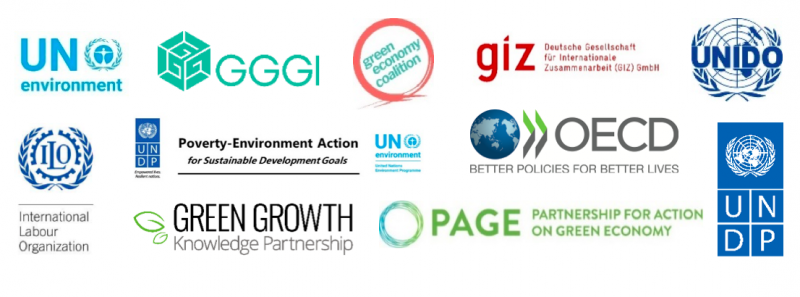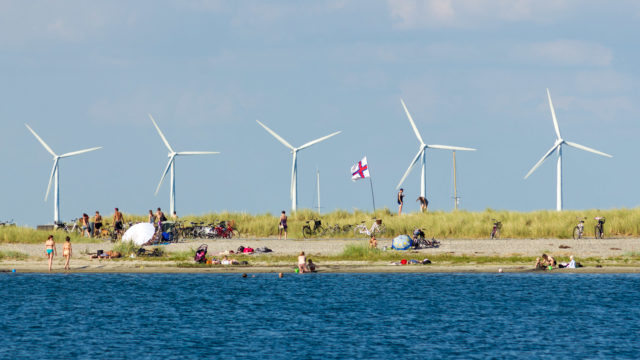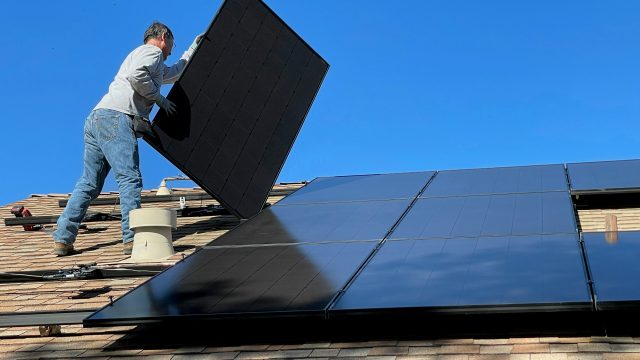Press Release: Global institutions unite on need for economic transformation
Leading labour, economic and environment institutions commit to our new principles to achieve green and fair economies.

In response to the global climate and ecological emergency, leading global labour, economic and environment institutions are coming together for the first time to commit to new principles to achieve green and fair economies, today at the United Nations High-Level Political Forum in New York (16 July).
The diverse institutions ― including the OECD, ILO, UNDP, UNEP and the Green Economy Coalition ― are calling for a different approach to governing economies in order to avoid environmental breakdown, one that puts people and nature first.
They are launching a framework for economic reform ― ‘Principles, priorities and pathways for inclusive green economies: Economic transformation to deliver the SDGs’ ― comprising a series of catalytic activities and key principles to guide collective action in diverse contexts.
Few countries are on track to achieve either their national targets for tackling climate change or the Sustainable Development Goals (SDGs). Humanity is facing unprecedented and interrelated challenges, including climate change, biodiversity loss and growing inequality.
“ Our policies have to be made with our children’s future in mind. Leaders need to think big and act bigger. This radical transformation demands a profound systemic change, and we are all part of this system.”
According to the Intergovernmental Panel on Climate Change, countries have only eleven years to prevent the worst impacts of climate change (October 2018). The Intergovernmental Science-Policy Platform on Biodiversity and Ecosystem Services (IPBES) has confirmed that nature is facing an unprecedented decline and one million species are threatened with extinction (April 2019).
The transition to inclusive green economies demands a significant shift in the way our economies are managed, measured and governed. Key steps include recognising the multiple values of nature in economic decision-making; prioritising wellbeing and the equitable distribution of opportunity and outcome; aligning prices, subsides and incentives with the true costs to society; embracing new models of development that enable economic growth without raising resource consumption; and supporting public participation and social dialogue.
The collaborating institutions are:
- Global Green Growth Institute (GGGI)
- Green Economy Coalition
- Green Growth Knowledge Partnership (GGKP)
- International Labour Organisation (ILO)
- Organisation for Economic Co-operation and Development (OECD)
- United Nations Development Programme (UNDP)
- United Nations Environment
- UN Partnership for Action on Green Economy (PAGE)
- UNDP-UNEP Poverty-Environment Action for Sustainable Development Goals (Poverty-Environment Action)
- Deutsche Gesellschaft für Internationale Zusammenarbeit (GIZ)
They are inviting other institutions to join their shared mission for green and fair economic transformation.
Quotes from institutional leaders
“Time is running short. We are past pledging and politicking. We are past commitments with little accountability. What’s at stake is life, and society, as the majority of us know it and enjoy it today.... It’s clear that we need to transform the way our economies work, and the way we value the things that we consume. The goal is to break the link between growth and increased resource use and end our throwaway culture”. Joyce Msuya, Deputy Executive Director, UN-Environment
“We can’t have a common future if we leave behind the vulnerable segments of our population, who often stand to be hardest hit by climate change...Our policies have to be made with our children’s future in mind. Leaders need to think big and act bigger. This radical transformation demands a profound systemic change, and we are all part of this system”. Angel Gurría, Secretary-General, OECD
“We need to work across governments, organizations, boundaries and sectors to improve our environment and daily lives… The tasks are too great for one country or organization. So, we need to work together”. Ban Ki-moon, President & Chair, GGGI
“Minor tweaks to our economy are not sufficient to reverse the decline of the natural world or close the widening gap between the richest and the poorest. Together, we have to embark on a new economic pathway – and these principles are the compass for that journey.” Oliver Greenfield, Convenor, Green Economy Coalition.
FOR MEDIA ENQUIRIES OR INTERVIEWS WITH ANY OF THE PARTNERS PLEASE CONTACT:
Ben Martin: Ben.Martin@greeneconomycoalition.org; +44 7709 913 460
Jessika Berns: jberns@ggkp.org: +41 22 917 8305
Notes to editors:
For the full report, please see: ‘Principles, priorities and pathways for inclusive green economies: Economic transformation to deliver the SDGs’
The GGKP’s three knowledge platforms – the Green Growth Knowledge Platform, the Green Industry Platform, and the Green Finance Platform – offer quick and easy access to the latest research, case studies, toolkits, learning products, principles, and protocols to empower policy makers and advisors, small and medium-sized enterprises, and banks, insurance, and investment firms to make evidence-based decisions about how to green their operations.

The collaborating institutions include:
The Green Economy Coalition is a global alliance of NGOs, researchers, institutions and think tanks that supports social dialogue, policy research and communications to accelerate the transition to green and fair economies.
The OECD is an international institution that promotes policies to improve the economic and social well-being of people around the world.
The Green Growth Knowledge Partnership (GGKP) is a global network of experts and organizations dedicated to providing the policy, business, and finance communities with knowledge, guidance, data, and tools to transition to an inclusive green economy.
Poverty-Environment Action, a joint programme of UNDP and UNEP, helps countries create an enabling policy, regulatory and institutional framework for aligning public and private finance and investment with national poverty-environment and related climate objectives for achieving the Sustainable Development Goals.
Based in Seoul, Republic of Korea, the Global Green Growth Institute (GGGI) is an intergovernmental organisation that supports developing country governments transition to a model of economic growth that is environmentally sustainable and socially inclusive. GGGI delivers programs in 33 partner countries with technical support, capacity building, policy planning and implementation, and by helping to build a pipeline of bankable green investment projects,
The only tripartite U.N. agency, the International Labour Organisation (ILO) brings together governments, employers and workers of 187 member States, to set labour standards, develop policies and devise programmes promoting decent work for all women and men.
The United Nations Development Programme (UNDP) works in about 170 countries and territories, helping to achieve the eradication of poverty, and the reduction of inequalities and exclusion. UNDP helps countries to develop policies, leadership skills, partnering abilities, institutional capabilities and build resilience in order to sustain development results.
The United Nations Environment Programme (UN Environment) is the leading global environmental authority that sets the global environmental agenda, promotes the coherent implementation of the environmental dimension of sustainable development within the United Nations system, and serves as an authoritative advocate for the global environment.
The Partnership for Action on Green Economy (PAGE] seeks to put sustainability at the heart of economic policies and practices to advance the 2030 Agenda for Sustainable Development and supports nations and regions in reframing economic policies and practices around sustainability to foster economic growth, create income and jobs, reduce poverty and inequality, and strengthen the ecological foundations of their economies.
The Deutsche Gesellschaft für Internationale Zusammenarbeit (GIZ) GmbH is a service provider in the field of international cooperation for sustainable development mainly commissioned by the German Government.


